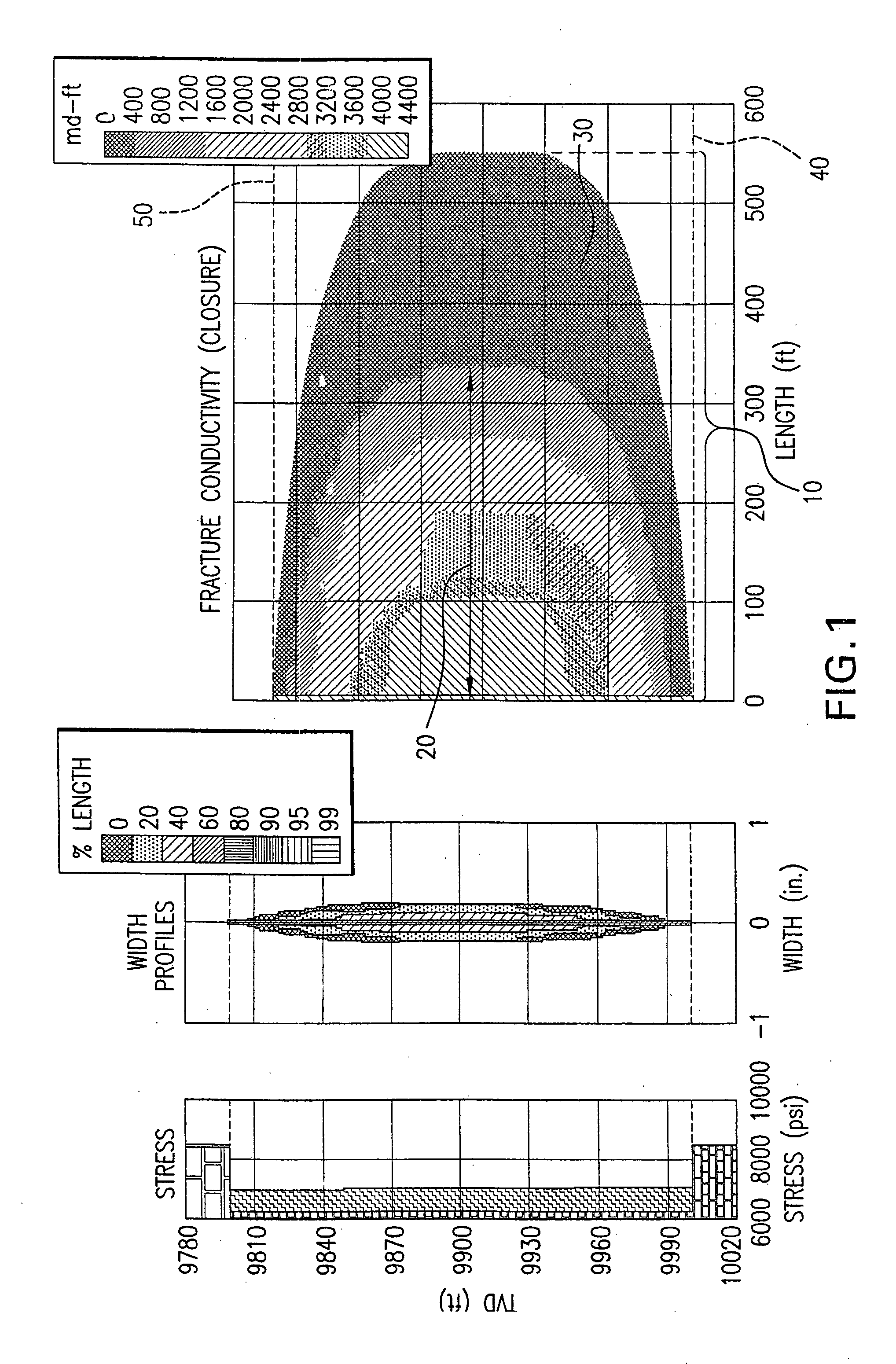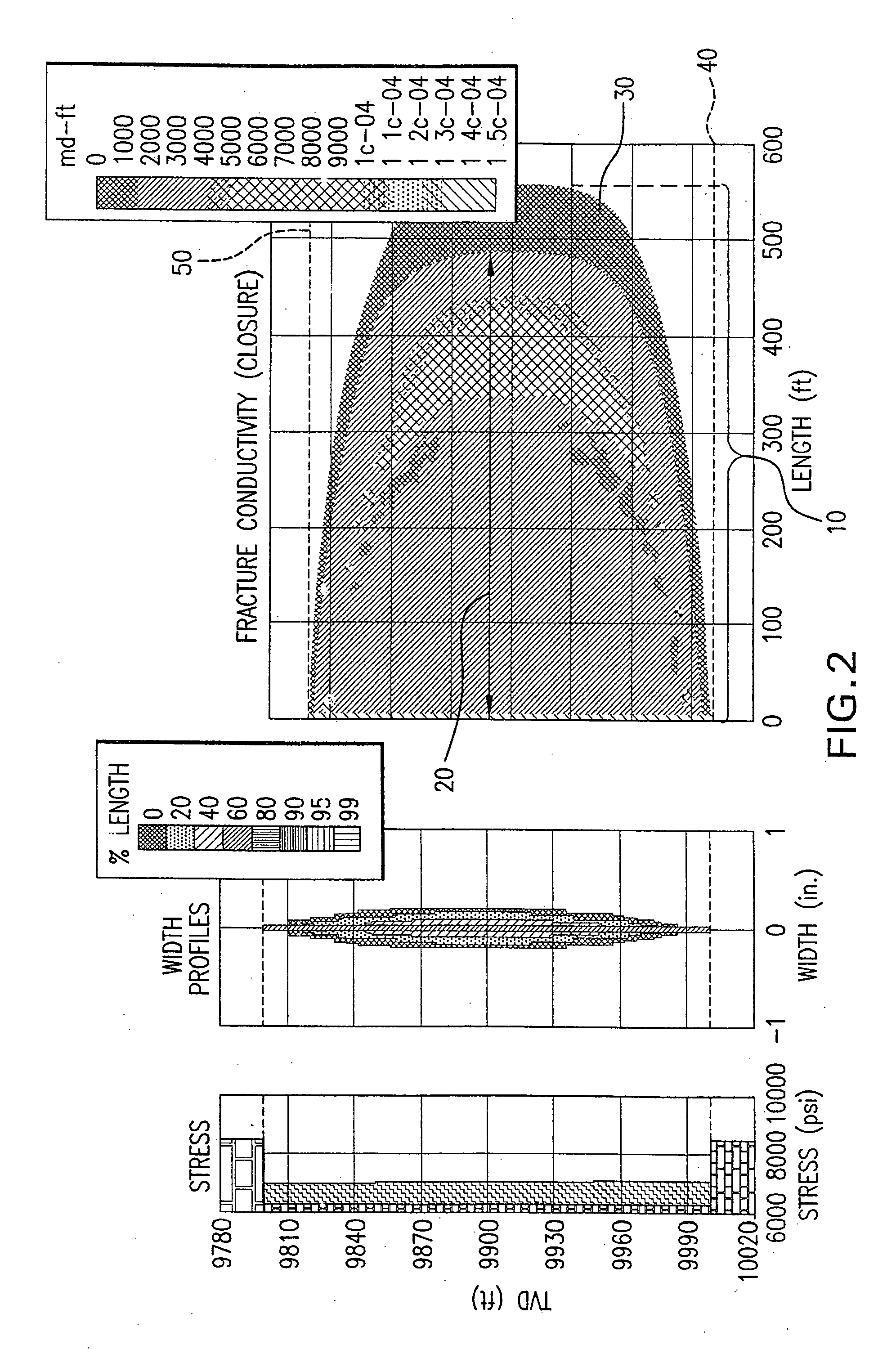Method of treating subterranean formations using mixed density proppants or sequential proppant stages
a technology of mixed density and subterranean formations, applied in the direction of fluid removal, chemistry apparatus and processes, borehole/well accessories, etc., can solve the problem of increasing and achieve the effect of reducing costs and improving the effective propped fracture length
- Summary
- Abstract
- Description
- Claims
- Application Information
AI Technical Summary
Benefits of technology
Problems solved by technology
Method used
Image
Examples
example 2
[0098] This example illustrates use of the combination of both sand and walnut hull ULW proppants.
[0099] One hundred pounds of sand and 50 pounds of walnut hull ULW proppant were blended together in a ribbon blender and circulated throughout the system. The blend displayed behavior almost identical to their individual tests, respectively. The sand settled even at very high flow rates, throughout the length of the slot as in the earlier test.
[0100] Because sand built bed height continuously throughout the test, the ULW proppant stayed suspended. Lateral velocity was increased by the sand bed, so very little ULW proppant was entrained in the sand bed. This is attributable to the fact that the sand bed height artificially increased lateral velocities in the slot to levels that maintained the ULW proppant in a suspension for the most part. Most of the sand settled out in the slot before any ULW proppant began to settle. Rates had to be dropped down to below 10 gpm in order to initiate...
example 3
[0102] This Example demonstrates the improvement in fracture conductivity by use of a ULW proppant as a component in a pad fluid.
[0103] A fracture was simulated using the Mfrac three-dimensional hydraulic fracturing simulator of Meyer & Associates, Inc. using a simple 3-layer isotropic homogeneous 0.1 mD permeability gas reservoir model, 40 acre spacing. The fracture was designed to be placed into the zone at a theoretical depth of 9800 feet and the model was run in full 3-D mode. The fracturing fluid was a crosslinked organoborate. The pad fluid was injected into the model at a rate of 50 barrels per minute (bpm). The fracturing fluid of Example 3A contained no ULW proppant. In Example 3B, a very small amount (0.5 pounds per gallon) of LiteProp™ 125 lightweight proppant, a product of BJ Services Company, was added to the fracturing fluid. The second and subsequent stages employed sand as proppant wherein the sand concentration was approximately 8 ppg. Since the Mfrac model does no...
PUM
| Property | Measurement | Unit |
|---|---|---|
| density | aaaaa | aaaaa |
| density | aaaaa | aaaaa |
| density | aaaaa | aaaaa |
Abstract
Description
Claims
Application Information
 Login to View More
Login to View More - R&D
- Intellectual Property
- Life Sciences
- Materials
- Tech Scout
- Unparalleled Data Quality
- Higher Quality Content
- 60% Fewer Hallucinations
Browse by: Latest US Patents, China's latest patents, Technical Efficacy Thesaurus, Application Domain, Technology Topic, Popular Technical Reports.
© 2025 PatSnap. All rights reserved.Legal|Privacy policy|Modern Slavery Act Transparency Statement|Sitemap|About US| Contact US: help@patsnap.com



